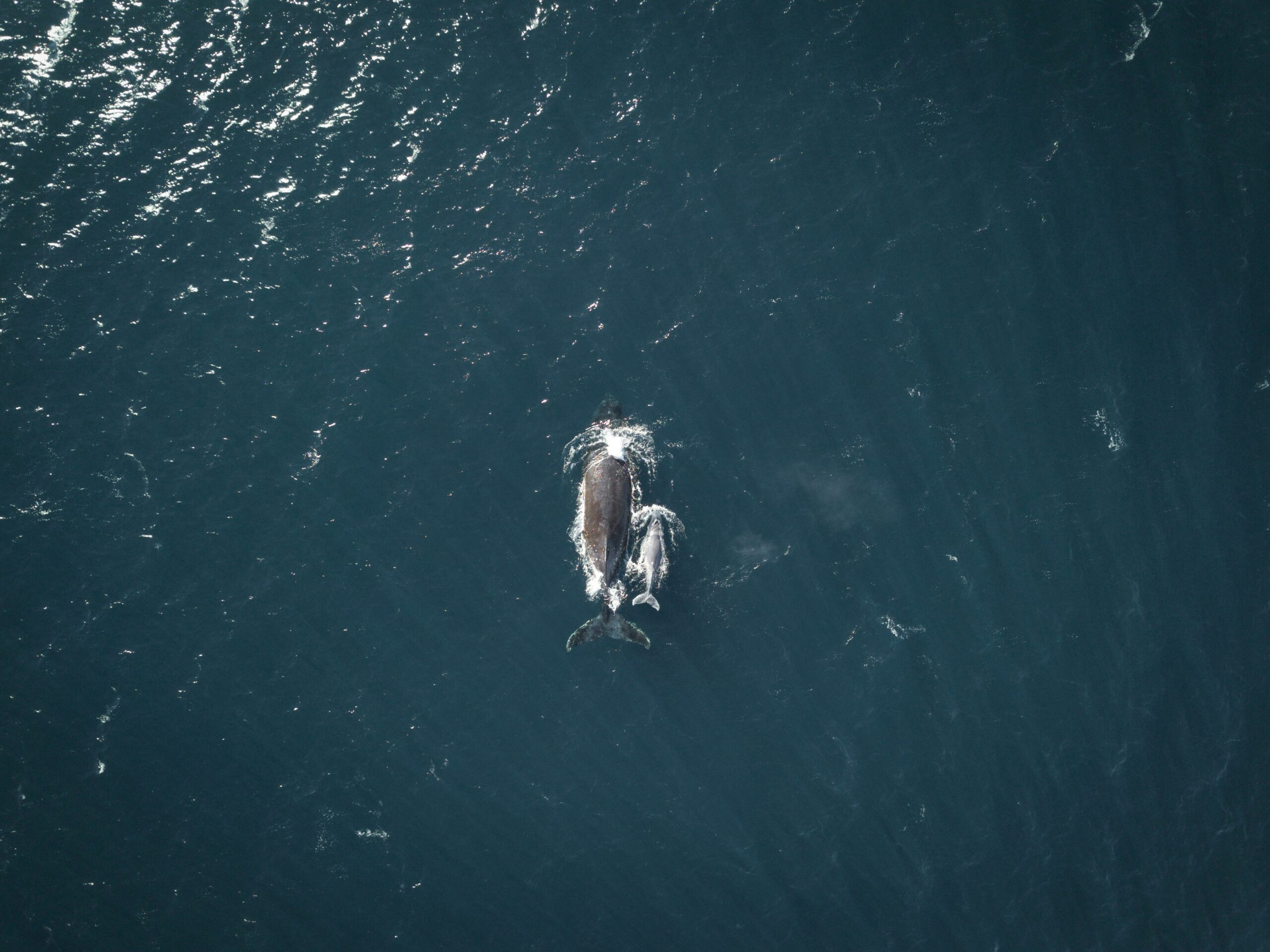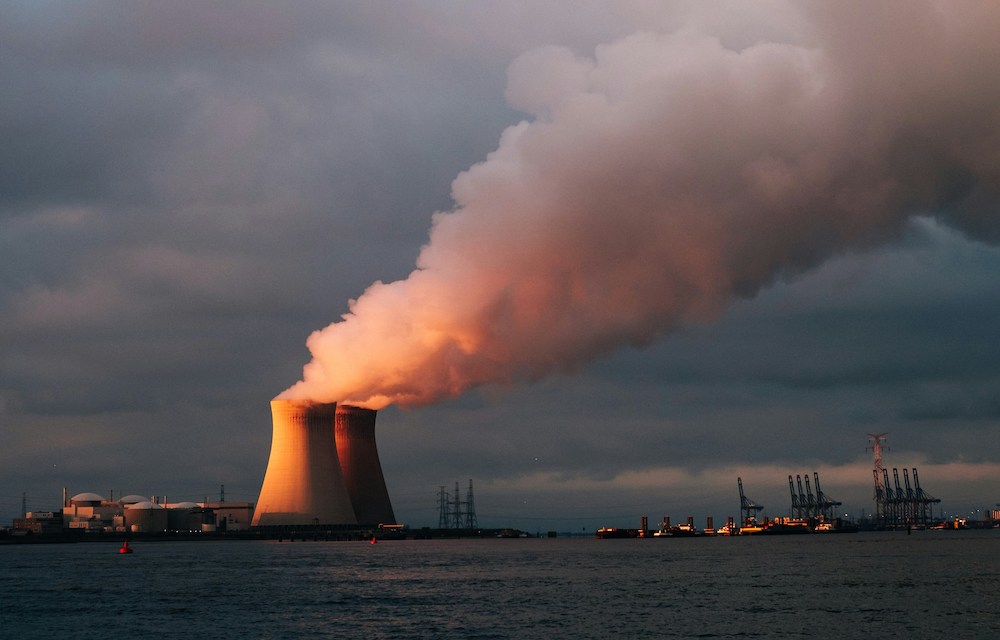Featured in

SIR DAVID ATTENBOROUGH’S latest documentary is very likely to be his last. Released to cinemas on his ninety-ninth birthday, Ocean has the tone of a valediction: a swan song with whale song, and a shakier iteration of that celebrated reverential rasp. Notwithstanding its five stars in The Guardian and 100% rating on Rotten Tomatoes, it is also something of a disappointment. For all its sumptuous cinematography, Ocean feels strangely out of its depth or, at any rate, out of its element.
This feeling sits to one side of the political questions that are bound to circulate around the new documentary, though these questions are legitimate ones. Attenborough has given his (massive) audience much stimulation over the decades. But as climate change and its attendant crises have come to the centre of political life, the question of how his brand of filmmaking fits into that picture has shadowed his progress.
For decades, Attenborough remained conspicuously quiet on the issue of anthropogenic warming, while also presenting what many regarded as an idealised image of the natural world, insensitive to the ecological disaster unfolding across the biosphere. One of the most strident interventions came from the environmentalist George Monbiot, who in 2018 accused the filmmaker of creating an impression of ‘security and abundance’ where in fact there was ecological devastation.
Perhaps stung by Monbiot’s criticisms, Attenborough has in the last few years taken a more proactive stance, addressing the UN in 2021 and dedicating the final episode of his 2017 series, Blue Planet II, to the issue of plastic pollution in our oceans. Timed to coincide with the United Nations Ocean Conference, where participating countries were asked to ratify a major agreement on ocean protection, the latest documentary continues in that vein – and actually goes somewhat further in its criticisms of activities such as industrial fishing, which is described as ‘modern day colonialism at sea’.
Many activists will want more, I imagine, and may baulk at the naive optimism of Attenborough’s claim that the (now ratified) ocean protection treaty is the game changer he suggests it is. But for much of his audience, the maddening footage of giant trawlers scraping the seabed and discarding three quarters of their catch will be a revelation and a cause of (righteous) anger. To that extent the documentary achieves its aim.
The problem with this kind of framing, however – in both its pro- and anti-Attenborough versions – is that it glosses over the extent to which such documentaries exist in a complex relationship with the issue of the environment, where that issue is taken as a multifaceted and overdetermined consequence of humanity’s relationship with non-human nature. Visually, Ocean is stunning: like every documentary in Attenborough’s oeuvre, it is a feast for the eyes and a technical marvel. But in stunning its audience, and in inspiring our wonder, it also underlines the extent to which we have separated ourselves from the ‘nature’ that’s taken as the object of interest. Indeed, it engenders such separation.
Over the course of his remarkable career, Attenborough has taken us not merely to places most people are unlikely to visit but to places that are impossible to visit – into birds’ nests, burrows, termite mounds and the deepest recesses of the oceans. We’re shown things we will never encounter ‘in the flesh’ and that are simply not available to our senses as we navigate our daily lives. Clearly, this is one source of the pleasure such programs give us. But in relation to how we move through the climate change era, it is also, I’m convinced, a limitation, in that it constitutes nature as something ‘out there’ – a territory we will never enter.
IN MAKING THESE points, I am in no way suggesting that we would have been better off without Life on Earth or any of the other documentaries in Attenborough’s filmography. What I am suggesting is that the climate change emergency is, at its deepest level, the consequence of the more abstract and instrumental world view that emerged from the Scientific Revolution and the revolution in technique that followed it. As science moved from the field to the laboratory, and then to the industrial workshop, a more abstract way of taking hold of nature began to emerge, changing not merely our ideas about the world but our very subjectivities. The microscope and the telescope gave us access to phenomena that otherwise would have remained unobserved – a boon not only to the theoretical scientist but also to the ambitious industrialist hoping to create new products, or to make existing products more efficient. Powerful new technologies – the factory system not least – combined with capitalism’s growth imperative to turn the whole of non-human nature into what Heidegger called ‘a standing reserve’: a thing to be utilised, instrumentalised, exploited.
Anthropogenic climate change is thus not only a crisis of capitalism (as some climate activists appear to believe) but also a crisis of modernity; it follows that one cannot truly grapple with the meaning of the current moment without also considering the ideological lenses through which we now confront the world – Attenborough’s camera lens among them.
There is, then, a close relationship between the ‘impossible’ images in documentaries such as this one and the technologies and ‘technological thinking’ that have brought us to this crisis point: a relationship based not on knowing nature but on not knowing it, or knowing it in a particular way. That environmentalism is turning increasingly to a new generation of transformative technologies to address the ecological crisis – to biotechnology, nanotechnology, solar radiation–management schemes and novel forms of nuclear power – makes it even more imperative that we dig down into the deep assumptions that allow such ‘ecomodernism’ to flourish. We also need to ask why it is that innovations in technology now dominate the view from the Overton window, while the social and political innovations that characterised an earlier era of environmentalism have substantially disappeared from that vista.
As Attenborough was beginning his filmmaking career, the atomic and genetic technologies through which we now propose to transform nature (to save it from ourselves) were in their relative infancy. It should be obvious that whatever potential they possess in relation to the climate emergency, they also represent an ontological emergencythat needs to be faced, and faced rigorously, before we countenance their widespread deployment. The ecological effects these technologies have had on our culture are a complicated matter. However, sitting in a largely empty cinema – watching the waters close symbolically over yet another whale fluke, feeling both the wonder and the moral confusion that accompanies that magnificent vision – seems like an appropriate place to start.
No doubt it would have been politically useful if Attenborough had come out for Just Stop Oil or got himself arrested at an XR protest. The role that celebrities and experts play in such matters is important and can even be exemplary. But we will not mount a serious response to the eco-crisis until we resolve to think more carefully about how and why we have come to this crossroads. We need to give voice to an idea of nature as something that surrounds and sustains us in ways far deeper than the instrumentalised thinking of the ecomodernists can understand – which goes indeed to the sociality, creativity and embodied pleasure without which we can never flourish. If this documentary from a legendary broadcaster can in some way recall us to that endeavour, even if only negatively, it can keep its five stars in The Guardian.
Image credit: Will Turner via Unsplash
Share article
More from author

Operation Totem
In the 1950s and 1960s, hundreds of atmospheric and underground tests were conducted in Australia, with devastating consequences for First Nations peoples and for the military personnel involved in the tests. And yet the debate about Peter Dutton’s plan to put Australia on a nuclear track barely mentioned this calamity, or indeed the deep antipathy towards all things nuclear to which it gave rise. Struggling to put Dutton’s policy in context, one looked in vain for even a passing reference to Dr Helen Caldicott, Moss Cass or Uncle Kevin Buzzacott; to the Campaign Against Nuclear Energy or the Uranium Moratorium group; to the seamen’s boycott of foreign nuclear warships in Melbourne in 1986; to the massive antinuclear marches of the 1970s and 1980s; to Kupa Piti Kungka Tjuta and its resistance to the dumping of radioactive waste. Indeed, one looked in vain for any sense of nuclear as a uniquely dangerous technology, or of the ‘deadly connection’ (as Jim Falk called it) between uranium mining, nuclear reactors and the development of thermonuclear weapons.